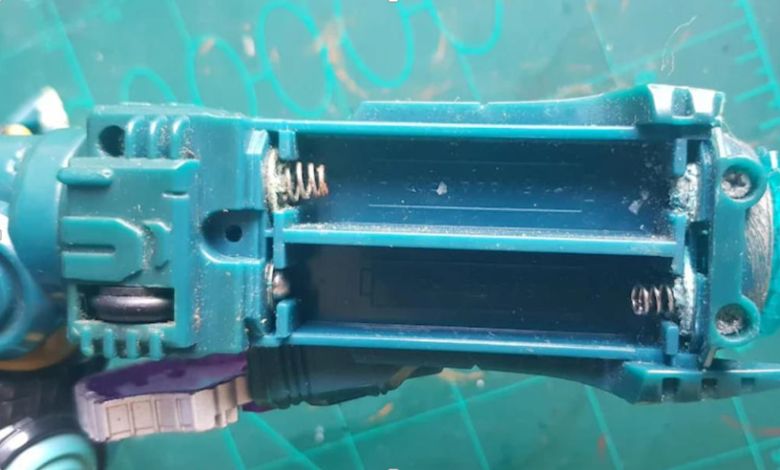What Every Parent Should Know About Baby Hygiene?

Ensuring proper hygiene for your baby is crucial for their overall health and well-being. From the moment they enter the world, babies are exposed to various germs and bacteria. Their immune systems are still developing, making them more susceptible to infections. Therefore, maintaining a clean environment and practicing good hygiene habits can significantly reduce the risk of illness. In this article, we will explore essential tips and practices that every parent should know to keep their little ones healthy and happy.
Understanding the Basics of Baby Hygiene
Understanding the fundamentals of baby hygiene is vital for every new parent. Babies have delicate skin that can easily become irritated, so gentle cleaning methods are essential. Regularly washing your hands before handling your baby is a simple yet effective way to prevent the transfer of germs. Additionally, keeping your baby’s living area clean—such as their crib and play areas—helps minimize exposure to harmful pathogens. It’s important to remember that even everyday items, like toys, can harbor germs, so regular cleaning is necessary. For instance, if you notice any battery corrosion in toys, knowing how to clean battery corrosion in toys can help ensure they remain safe for your child.
Common Myths About Baby Hygiene Debunked
Many myths surrounding baby hygiene can lead to confusion and unnecessary worry for parents. One common misconception is that babies do not need regular baths. In reality, while newborns don’t need daily baths, regular cleaning is essential to remove milk residue and sweat. Another myth is that using antibacterial products is always necessary. However, excessive use of these products can disrupt the natural balance of bacteria on your baby’s skin. Moreover, some parents believe that a baby’s immune system will become stronger if they are exposed to more germs. While moderate exposure can help build immunity, too much exposure can lead to infections. Understanding these myths allows parents to make informed decisions about their baby’s hygiene.
Bathing Your Baby: Best Practices and Tips
Bathing your baby can be a delightful experience, but it’s important to follow best practices for safety and comfort. Start by ensuring that the bathing area is warm and free from drafts. Use a soft washcloth and lukewarm water to gently cleanse your baby’s skin. It’s advisable to bathe your baby only a few times a week, as too frequent bathing can dry out their sensitive skin. Always keep one hand on your baby to prevent slipping, and never leave them unattended. After the bath, gently pat them dry with a soft towel, focusing on areas where moisture can accumulate, like the folds of their skin. Additionally, using fragrance-free and hypoallergenic products can help avoid skin irritation. Remember, bath time is not just about cleanliness; it’s also a wonderful bonding opportunity between you and your baby.
Diaper Care: Keeping Your Baby Clean and Comfortable
Proper diaper care is essential for maintaining your baby’s comfort and preventing diaper rash. Change your baby’s diaper frequently to keep their skin dry and clean. When changing, use gentle wipes or a damp cloth to clean the area thoroughly. Always wipe from front to back to prevent infections. After cleaning, allow the skin to air dry before putting on a fresh diaper. If your baby develops a rash, consider using a barrier cream to protect their skin. Additionally, be mindful of the materials used in diapers, as some can irritate sensitive skin. Regularly checking for signs of discomfort, such as fussiness or redness, can help you address issues promptly. By prioritizing diaper care, you ensure your baby remains comfortable and happy throughout the day.
Oral Hygiene: Caring for Your Baby’s Gums and Teeth
Oral hygiene is often overlooked in infants, but it is crucial for their long-term dental health. Even before teeth emerge, it’s important to clean your baby’s gums with a soft, damp cloth after feedings. This practice helps remove harmful bacteria and prepares them for the arrival of teeth. Once your baby’s first tooth appears, transition to a small, soft-bristled toothbrush. Use water instead of toothpaste until they are old enough to spit it out. Establishing a routine of brushing twice a day will help instill good habits early on. Additionally, be mindful of their diet, as sugary foods can lead to cavities even in young children. By prioritizing oral hygiene, you set the stage for a lifetime of healthy teeth and gums.

Maintain Cleanliness of Baby Belongings
Keeping your baby’s belongings clean is just as important as maintaining their personal hygiene. Regularly washing items such as blankets, clothing, and soft toys helps reduce allergens and bacteria. For toys, especially those that can be cleaned, follow the manufacturer’s instructions for washing. If a toy has been exposed to battery corrosion, knowing how to clean battery corrosion in toys is essential to ensure they remain safe for play. Additionally, sanitize pacifiers and bottles frequently to prevent the growth of harmful bacteria. Creating a clean environment for your baby promotes their health and provides peace of mind for parents.
Conclusion
Establishing healthy hygiene habits from an early age is vital for your baby’s health. By understanding the basics of baby hygiene, debunking common myths, and implementing best practices for bathing, diaper care, oral hygiene, and cleanliness of belongings, you can create a safe environment for your child. These habits not only protect your baby from illness but also foster a sense of comfort and security. Remember, a clean baby is a happy baby, and your efforts will pay off in the long run as they grow into healthy individuals.




